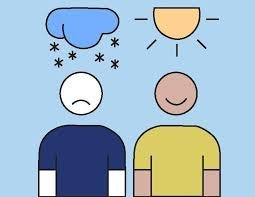
Depression Treatment in Denver
Depression can feel isolating—but you don’t have to face it alone. We offer personalized, evidence-based depression therapy in Denver to help you move forward with clarity and support.
What is Depression?
Major Depressive Disorder, commonly referred to as clinical depression, is a mental illness characterized by persistent feelings of sadness, feelings of hopelessness, and loss of interest in activities that were once enjoyable. Depression can also cause physical symptoms, such as fatigue and changes in appetite.
Depression affects people of all ages, races, and socio-economic backgrounds, and is one of the most common mental health conditions and mood disorders. It is more than just feeling down or going through a rough patch and can have a significant impact on a person’s ability to function in daily life.
While statistics reflect that more women are diagnosed with depression than men, major depressive disorder will become a problem for approximately 19 million Americans per year.
Depression can have far-reaching implications for family members and friends as well. People with depression are often unable to communicate or express their feelings and experiences. This can have an alienating effect on friends and family members, especially when they do not have a clear understanding of what depression truly is.
Helen M. Farrell examines the symptoms and treatments of depression, and gives some tips for how you might help a friend who is suffering.
What are Depression Symptoms?
Depression can look different for every individual but is typically characterized by symptoms that include the following:
Persistent low mood or sadness
Loss of interest
Poor sleep
Loss of appetite or over-eating
Difficulties with concentration
Loss of energy
Feelings of guilt or a sense of worthlessness
Feeling either significantly slowed down or perhaps restless or keyed up
Thoughts of suicide
It’s not always easy to recognize that someone is dealing with depression, because it manifests differently in everyone. A preconception we might have of what depression looks like, is someone who can barely get out of bed. There are, however, many people who might, subconsciously, try to “escape” their depression by being constantly on the move. Some might experience loss of appetite whilst others seek comfort in eating.
If a family member or friend is exhibiting any, or a combination of, the symptoms described above, meet them from a place of no judgement. Offer simplicity: a walk, homemade soup, a listening ear or a space of no pressure: allow the person to just be in your presence.
If these symptoms persist over a longer period of time, it is important to seek help.
Treatments for Depression
Treatment for depression often involves a combination of therapy, medication, and lifestyle changes.
Here at CBT Denver, our therapists specialize in integrating cognitive and behavioral interventions, mindfulness techniques, and values clarification. We work with our clients to understand their specific challenges and to develop an individualized path forward.
Modalities used at CBT Denver to treat depression include:
-
This approach focuses on getting people with depression out of a cycle of inactivity brought on by avoidance behavior. By resuming a schedule of activities (which were previously) enjoyable for the person, the mood is boosted and a sense of routine reestablished.
-
Cognitive Behavior Therapy is the most widely-used therapy to treat depression and anxiety. This short-term, goal-orientated form of therapy teaches individuals how their thoughts and actions can impact their overall mood and mental health, and tools to help them change these patterns.
-
Using the principles of mindfulness and CBT, Acceptance and Commitment Therapy (ACT) teaches individuals to accept negative thoughts and/or emotions, rather than fighting against them or acting on them. This is a short-term and effective therapy style with long-term results.
-
Mindfulness-based cognitive therapy (MBCT) is exactly what it sounds like: a powerful combination of CBT and mindfulness approaches including breathing meditation, yoga and breathing exercises.
MBCT grew out of MBSR, developed by Jon Kabat Zinn as an eight-week group therapy program focused on stress reduction, and CBT. It shares similarities with ACT in that, it teaches individuals to recognize and accept thoughts and emotions, without giving them control.
-
Interpersonal Therapy (IPT) is a time-limited, evidence-based psychotherapy that focuses on resolving interpersonal problems and improving relationships with others.
The goal of IPT is reducing symptoms of depression and anxiety while improving communication skills and promoting greater social connectedness and support.
-
Eye Movement Desensitization and Reprocessing (EMDR) Therapy is an evidence-based approach aimed at reducing the intensity of traumatic events, and the negative beliefs and emotions that often accompany them.
While EMDR was originally developed to treat trauma such as abuse, assault, or car accidents, it is now also used to treat depression, anxiety, fear of public speaking, performance anxiety, and unresolved grief.
Learn more
Working Towards a New Understanding of Depression with CBT Denver
As with any mental health illness and/or disorder, one of the first steps to betterment is understanding it. There may not be an obvious answer as to why you or a loved one are experiencing depression, but there are several answers to how it can be treated.
At CBT Denver, our team of specialists are here to help you understand your depression and determine the best course of treatment for you. For more information, please get in touch.

Contact us
Learn More About our Depression Therapy Treatments at CBT Denver
Don’t hesitate to reach out. We can help you decide what might be best for you through an initial phone consultation and answer any questions you have.








